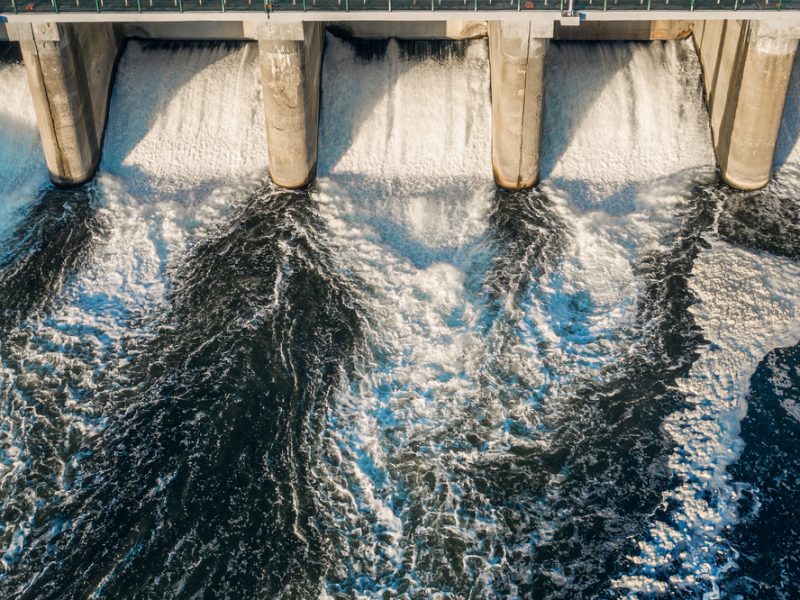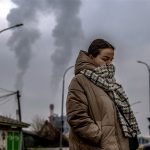High in the Austrian Alps, hundreds of construction workers toil away at a huge underground project aimed at storing hydroelectricity as climate change has reduced the country’s water-dependent electricity generation.
Austria derives more than 60% of its electricity generation from the renewable energy source, compared to a global average of 16%, with more than 3,100 dams spread across its rivers.
But the amount of electricity generated through hydropower in the European Union country has dropped from about 45 terawatt hours (TWh) in 2020 to 42 TWh in 2021, as water levels are declining.
For the first time last year, Austria, which is still heavily dependent on Russian gas, had to import electricity, sounding alarm bells.
In the snowy mountain range above the Austrian village of Kaprun in the Salzburger Land, trucks enter and leave the vast underground construction site, dotted with statues of Santa Barbara, patroness of miners and others engaged in dangerous trades.
Excavation work for the Limberg 3 pumped storage power plant is nearing completion.
‘well prepared’
The plant will be operational by 2025 to store energy to meet peak electricity consumption and mitigate a change in weather patterns, including increasingly erratic and erratic rainfall.
“We want to be well prepared,” said Klaus Hebenstreit, executive at major electricity producer Verbund.
“The distribution (of water) throughout the year will change: we will have less water in the summer (due to drought) and more in the winter” due to the snowmelt, he added.
Two years of drought has hit Austria, like the rest of Europe, according to Roman Neunteufel, a senior researcher at the Vienna University of Natural Resources and Life Sciences.
“If there are several years of drought in a row, then that becomes very apparent… Water levels have never been lower since records began” about 100 years ago, he said.
Europe should prepare for more deadly heatwaves caused by climate change, said a report last month by the World Meteorological Organization and the European Union’s Copernicus Climate Change Service.
The report found that the world’s fastest-warming continent was about 2.3 degrees Celsius warmer last year than in pre-industrial times.
In the Alps, glaciers experienced a new single-year record mass loss in 2022, caused by very low winter snow levels, a hot summer and deposits of windblown Saharan dust.
Difficult diversification
Verbund, a semi-public company, continues to pour billions of euros into hydroelectric power generation despite criticism from activists who say the dams and plants have a big impact on the environment.
“The expansion of hydroelectricity must be ecologically and socially compatible…. The full expansion of hydroelectric power is not the solution to our energy problem. Instead, energy needs to be saved,” says the Word Wildlife Fund on its website.
Verbund is looking for alternatives.
“Water will continue to be extremely important to us, but we also want to develop photovoltaic and wind energy… We are diversifying,” Hebenstreit told AFP in Vienna on a day when temperatures soared to 37 degrees Celsius .
Austria, which aims to get all of its electricity from renewable sources by 2030, has been slow to develop wind and solar power, which account for just 13 percent of its electricity.
“Solar energy is wonderfully plentiful in the summer… But production is too low in the winter, just when we need it for heating,” Neunteufel said.
“And with wind, it’s even more difficult to plan: there can be days at any time without wind, and then wind energy production largely stops,” he said.
Read more with EURACTIV
#Climate #change #challenges #hydroelectricdependent #Austria
Image Source : www.euractiv.com


